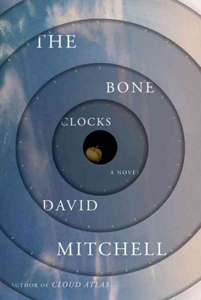
This is not a review of David Mitchell’s The Bone Clocks.
I don’t even mean that in the self-consciously Magrittesque kind of way. If this were a review I’d tell you to read the book, or not, which I don’t plan to do. I mean, okay, for those of you who haven’t made up your minds on David Mitchell’s latest opus: while I had an excellent time on every individual page, the book landed strange for me, and this essay is me trying to figure out why. Asking “Should I read this book” is like asking “Should I take up power lifting?” or “Should I learn Chinese?” Answer: depending on your goals, your experience, your medical history, your ambitions, how much free time you have—Maybe?
I do, though, think this book succeeds at something really really cool and interesting, even if it fails as a unit. And the shape of this cool interesting thing challenges the goals and underlying structures of modern science fiction and fantasy—especially fantasy.
Because Mitchell’s written a fantasy novel. That point seems impossible to argue. His world contains immortals who teleport, throw fireballs around, and kill people with a thought. To call it anything else would be silly. And yet…
Mitchell’s written a fantasy novel. That point seems impossible to argue.
Let’s face it: the science fiction and fantasy community tends to moan about the “genre divide,” the fact that, say, Gene Wolfe and Nnedi Okorafor don’t stand much chance of winning the Nobel Prize for Literature. That’s a fine conversation to have, but the more we have it the more we tend to overlook the fact that great writers on the literary side of the line are biting our style in the best possible way—taking genre markers and doing fabulous, weird things with them.
Yes, some literary writers reap praise for using the genre toolbox to create work that, on a genre shelf, would pass unnoticed or fall into the gap of “well-written but unremarkable”—but many make masterpieces. David Foster Wallace’s Infinite Jest is a science fictional retelling of Hamlet (or, more precisely, the parts of Hamlet that take place before Act I); Madeline Miller’s The Song of Achilles is a lyric Trojan war tragedy complete with gods and ghosts. (The reverse happens too: Karen Joy Fowler’s used science fictional techniques to write a killer literary novel in We are All Completely Beside Ourselves.)
So let’s talk about the The Bone Clocks. The rest of this essay, my lawyer instructs me to tell you, includes spoilers for that book, as well as for The Magicians, Cloud Atlas, The Sandman, and the first thirty minutes of Secret of Mana. Cool? Cool.
As in Mitchell’s novel Cloud Atlas, we’re treated here to a series of novellas that, very loosely speaking, follow a central character—Holly Sykes—through her life, from her teenage years in the 80s to her grandmotherhood in 2043. The first and last novella star Holly, while the rest follow other characters who intersect her life. A supernatural war takes place behind the novel’s scenes, between a group of basically peaceful immortals and another of spiritual carnivores: magicians who gain eternal life by eating human souls.
So far, so good. Most fantasy novels, given this sort of backdrop, would naturally settle in to some sort of Hero’s Journey. Holly’s first encounter with Magic Stuff happens after she’s run away from home; that will be her call to adventure, and we’ll follow as she learns the truth of the hidden world. She’ll discover, amid earthshattering adventures, that the bourgeoise reality of Gravesend and her family pub is the tissue paper surface over a world of secret powers and transcendent danger. She’ll beat the Bad Guys in a triumphant display of mystic acumen, or Love, or Whatever Our Target Virtue Is This Week, but she Can’t Go Home Again, or if she Can, her Going Home becomes a tragedy of magic, friends, and love abandoned.
This structure stands at the core of modern genre. I’m not saying it’s bad, or even good, just that it’s there. This is Star Wars, this is The Dark is Rising, this is Wizard of Earthsea, this is The Lord of the Rings and War for the Oaks. (All stories, by the way, for which I have a deep affection.)
But this isn’t The Bone Clocks. I’ll call what he’s doing anti-fantasy, and I think it’s wonderful.
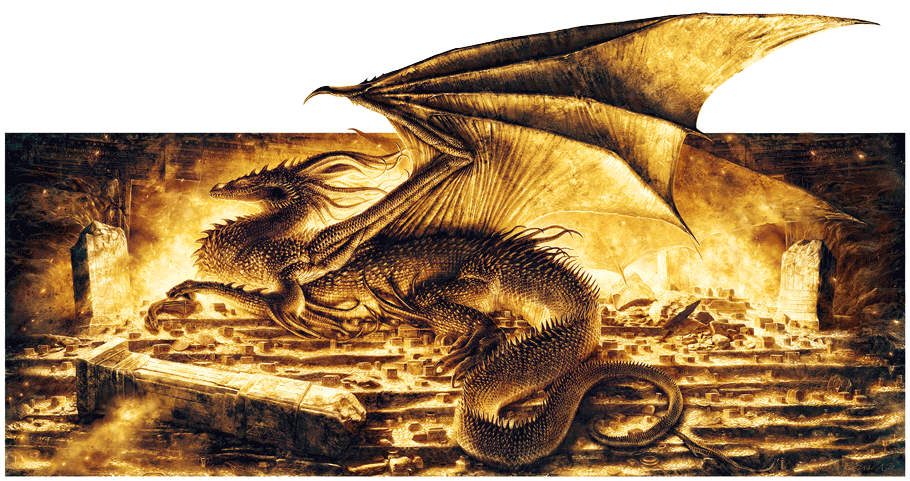
Art by Mike Nash
When will I get my Hogwarts letter, or stumble into Narnia? When will I turn out to be the Chosen One?
See, that Hero’s Journey, when implemented weakly, has a glaring problem: the home village starts to seem awfully small and useless set against the background. The village is the eggshell that contains and constrains our young Hero, until its destruction frees her. After emerging wet and sticky as a fledgeling chick, she must clean herself of the (often perfunctorily handled) trauma before she, or more often he, can soar above the world, unbound by cruel gravity! Etc. So we who read stories of this kind over and over as children start to think, damn, I can’t wait for something to come and tear me away from this place, and these losers. When will I hear the Call to Adventure? When will I get my Hogwarts letter, or stumble into Narnia? When will I turn out to be the Chosen One?
When will this illusion I’m living break open to confront me with the Real?
This is the mindset Lev Grossman skewers in The Magicians, where Quentin keeps waiting for existential satisfaction to descend on him from On High as if God Herself opened the Ineffable Faucet. And of course the continually-repeated joke of that book is that it never happens, because you stay you, even when you can do magic. It doesn’t help for Quentin to go to magic school, or master magic, or go to Fillory, or even to learn that basically the entire world has been arranged for his benefit. We need to go hunt down meaning, or build it, rather than waiting in our discontent for the faucet to open. (Reactions to The Magicians seem to vary widely depending on when the reader in question processed that particular insight. Folks who figured it out earlier tend to have relatively little sympathy for Quentin.)
That’s the psychological picture. Socially, in fantasy novels the “real” world can seem like a shadow when set against the magical Other. (Sometimes it’s literally described that way: when you get to the Other World the colors are sharper, more vivid, etc.) Some books reinforce this phenomenon by presenting the hero’s pre-magic life in cursory terms at best. We’re supposed to believe the protagonist wants to get back to her home village—but do we really care? In the first act of the SNES classic Secret of Mana (Seiken Densetsu 2), when my Hero was banished from his home, my first reaction was: good riddance! It was a boring village.
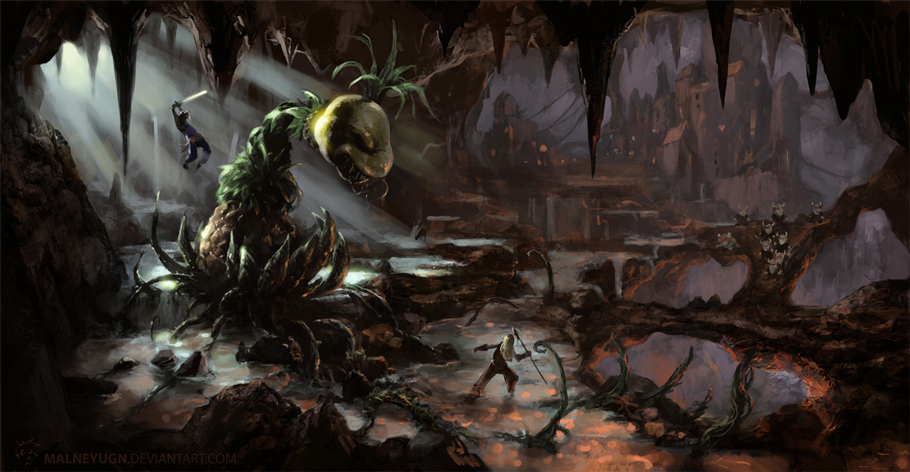
Art by Lam Nguyen
If that’s fantasy, then the Bone Clocks is an anti-fantasy: it wrestles constantly with fantasia’s tendency to sap meaning from normal human life.
If that’s fantasy, then the Bone Clocks is an anti-fantasy: it wrestles constantly with fantasia’s tendency to sap meaning from normal human life. The fantasy element here is textbook cool, with all the weird names and strange language I love (though Mitchell’s lack of experience writing pure fantasy does him a slight disservice: some of the language he invents for fantastical concepts fits poorly in the mouth—psychosoterica and psychovoltage, for example and in my opinion), but it’s by far the least compelling part of the book. It’s a classic case of cool as the enemy of caring. Outside of the fantasy elements, the human stakes in each scene are masterfully drawn, the drama tight and elegant, the characters’ individual flaws and foibles clear and compelling, while the fantasy is a shadow-play at best. I cared much more about whether the war reporter would go to his daughter’s school play or accept his next assignment, whether the teenage runaway would make it in the big world, whether the Bad Boy of British Letters would eventually become a decent human being, than about the soul carnivores’ machinations.
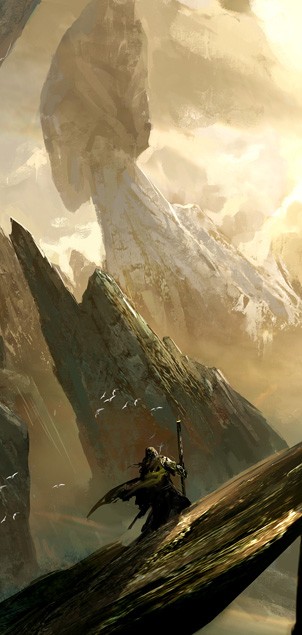
Art by Kekai Kotaki
Ordinarily I have a kind of sick sadistic expectation when reading a fantasy (or for that matter horror) novel: when’s the cool stuff coming? When will those pleasant peasants bite it? But in The Bone Clocks I found myself dreading the very material for which I usually drool. A bad guy pops out of a hole in the air to ruin the day of an acerbic novelist, and for once rather than saying “yeah, let’s see some action!” I’m scared for our novelist friend. I don’t just want him to survive the confrontation with the evil wizard—I want the evil wizard never to show up. That wizard’s intrusion feels like a disgusting joke—he’s an inhuman creature warping the reality of people I know and love. And he does kill people. And every death matters.
Rather than Magic appearing as a strange new world, a hidden reality, the Truth that’s Out There, here Magic is a choice that pulls people out of reality, that destroys the reality it encounters. Embracing the Magic, heeding the Call to Adventure, again and again throughout The Bone Clocks, leads to abandoning love and wonder and everything that makes life worth living. Sometimes the moral environment demands people make that sacrifice—for example, to fight for truth in the face of overwhelming lies and tragedy, as in the case of the war reporter deciding whether to return to the front. But often people throw themselves out of the world, and out of the human community, for no good reason, due to promises of power, immortality, and wealth, or even for simple pique. Sometimes those same choices can even be unmade, at least in part. Souls can be saved.
In this book, for all its immortal war games, we bone clocks are ultimately what matters.
And here’s the best part, sort of, from this angle: the magical plot turns out to be absolutely inconsequential! The world in the final chapter of The Bone Clocks is falling apart Mad Max style in spite of the Good Guys’ victory. Sure, one Good Guy stands against the darkness—but he barely matters. In the world of the novel we ordinary humans have done a great job screwing up our world all on our own, with minimal Bad Guy intervention. Holly Sykes’ ultimate significance is just, and more than just, that she’s a person, a human being with the capacity for dreams, growth, and love—in this book, for all its immortal war games, we bone clocks (the immortals’ word for humans) are ultimately what matters.
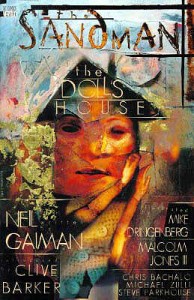
Gaiman, in The Doll’s House, has Dream of the Endless caution his sister Desire that “we” (the Endless, immortal god-type things) “are their dolls,” their in this case referring to humanity. In context, the line suggests that, much as Desire and Dream may feel human lives insignificant, humans are actually the ones that matter. This is one of my favorite lines in The Doll’s House, in all of Sandman in fact, precisely because it turns the usual order of fantasy on its head. Gaiman never quite follows through on the potential of this line IMO—the most meaningful moment in each human character’s life is always that character’s contact with the Endless—but it’s a great sentiment that illuminates the issue I’m hammering here. The Bone Clocks follows through. And while The Magicians does a great job of showing that magic doesn’t provide existential validation, The Bone Clocks shows that human life can.
Now. All that said, I don’t know if the book works. It certainly isn’t perfect. For example, consider the final Mad Max-in-Ireland chapter, which returns to Holly Sykes’ point of view for the first time since she was fourteen. There’s very little magical intervention here, just character—which fits perfectly with the anti-fantasy concept. Ideally, though, for a character-driven story, this would be the chapter where we see how much Holly’s grown—where the climax of the Magic plot in the penultimate chapter is revealed to be a shadow of the actual human resolution. That resolution should probably feature Holly doing something she never would have done if the events of the novel hadn’t happened—or at the very least, show some depth to Holly we never would have suspected earlier. Mitchell doesn’t take either path, as far as I can tell. Holly makes a sacrifice for another, but it’s no surprise that she does so; she would have made the same decision at fourteen, I think. As such, for this reader at least, the final chapter felt a bit pointless, serving mostly to show how the world of The Bone Clocks becomes the future of Sonmi-451 (dammit, I just got that Bradbury reference. Mitchell!!!!) and Sloosha’s Crossing from Cloud Atlas. I closed the book, as a result, a bit at odds with myself. I couldn’t really say what had just happened, in spite of enjoying every page turn. This essay, among other things, has been my struggle to unravel that confusion.
To sum up: I read The Bone Clocks as a sophisticated unraveling of core tropes of the fantasy genre, a masterful pommel horse routine that two-foots the landing. I wonder if fantasy will rise to the challenge I think this book presents, by embracing the power and tragedy of human relationships, by rendering the real world real—if fantasy will bite the lit-ra-ture’s style back. If so, it’ll be fun to read.

Buy The Bone Clocks by David Mitchell
This essay first appeared on Max Gladstone’s blog on October 15th, 2014
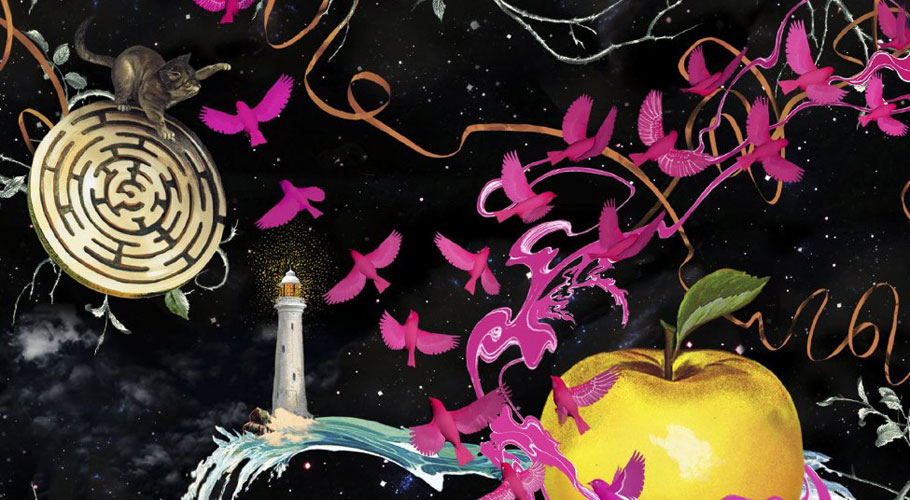
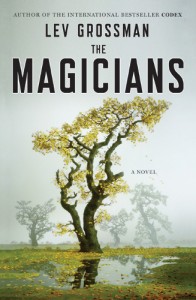


[…] I would describe David Mitchell’s The Bone Clocks as a half-fantasy [Also read: Max Gladstone’s piece on Bone Clocks as the anti-fantasy]. […]